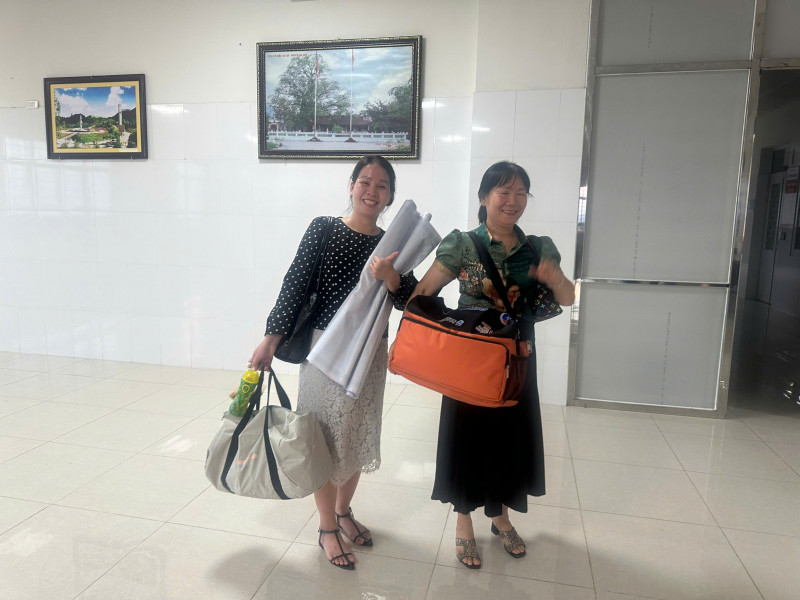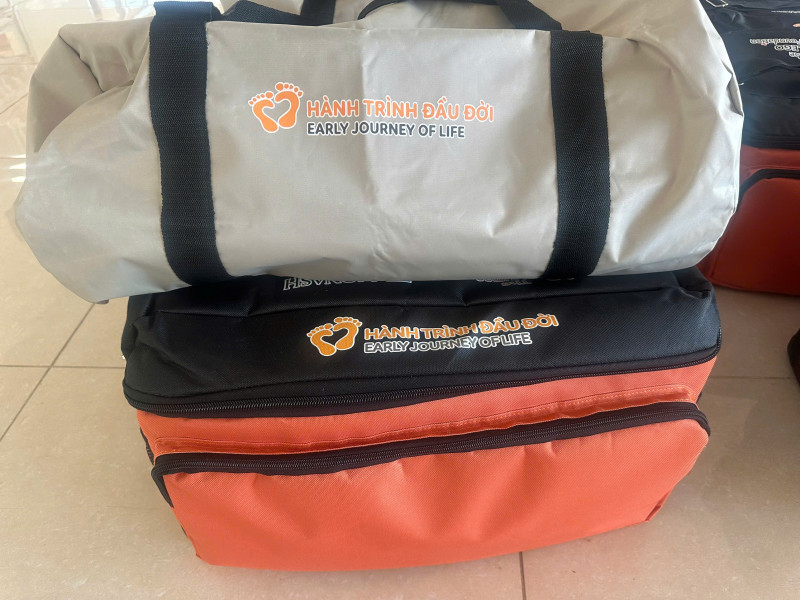25/09/2025 - 11:56 am
0
Within the framework of the EM-THRIVE project, the Quang Ninh Provincial Center for Disease Control organized the first training session for health workers from 20 communes/wards at Hai Ha Health Station on September 17–18, 2025. The entire training process was supervised and technically supported by the Research and Training Centre for Community Development (RTCCD). The […]
Within the framework of the EM-THRIVE project, the Quang Ninh Provincial Center for Disease Control organized the first training session for health workers from 20 communes/wards at Hai Ha Health Station on September 17–18, 2025. The entire training process was supervised and technically supported by the Research and Training Centre for Community Development (RTCCD).
The training brought together 40 health workers from 20 units, with instruction provided by two provincial-level trainers. At the opening session, Dr. Nguyen Hong Uyen, Deputy Director, delivered a speech and introduced the project.
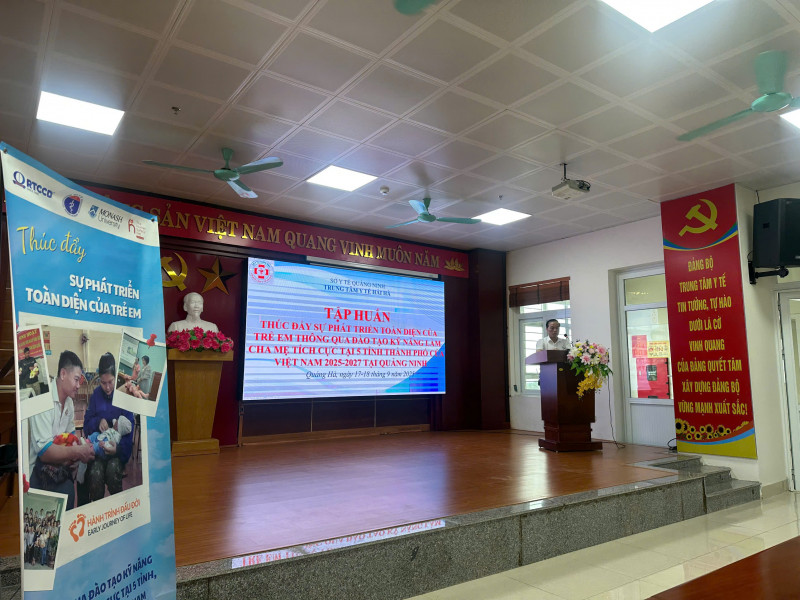
The training aimed to equip commune/ward health workers with comprehensive knowledge and skills on child development, ranging from the caregiving–nurturing framework to recognizing developmental milestones by age. In addition, health workers reviewed first-aid knowledge on common childhood injuries such as choking, drowning, burns, and electric shocks. All participants were required to practice on child dolls.
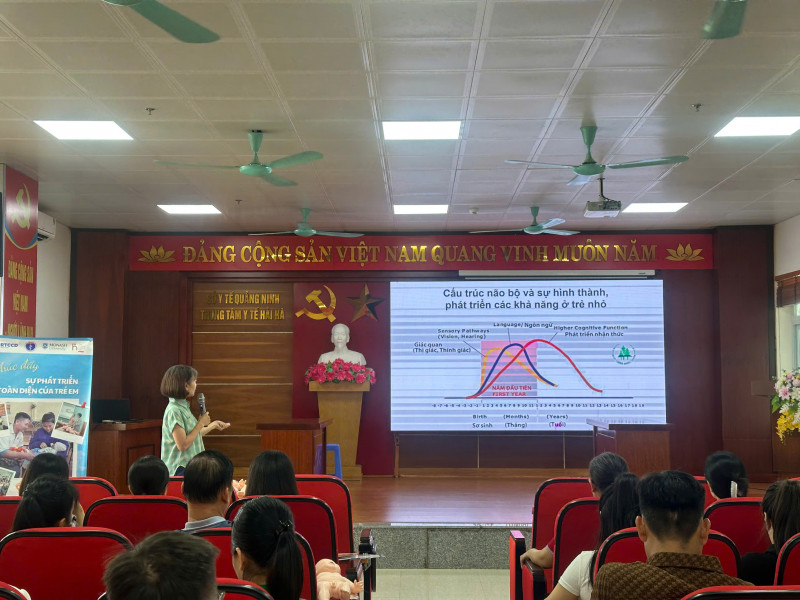
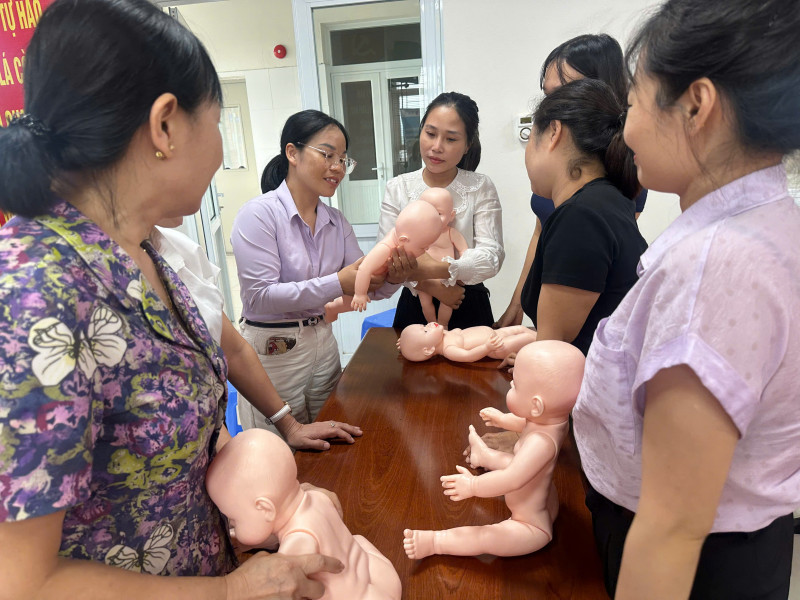
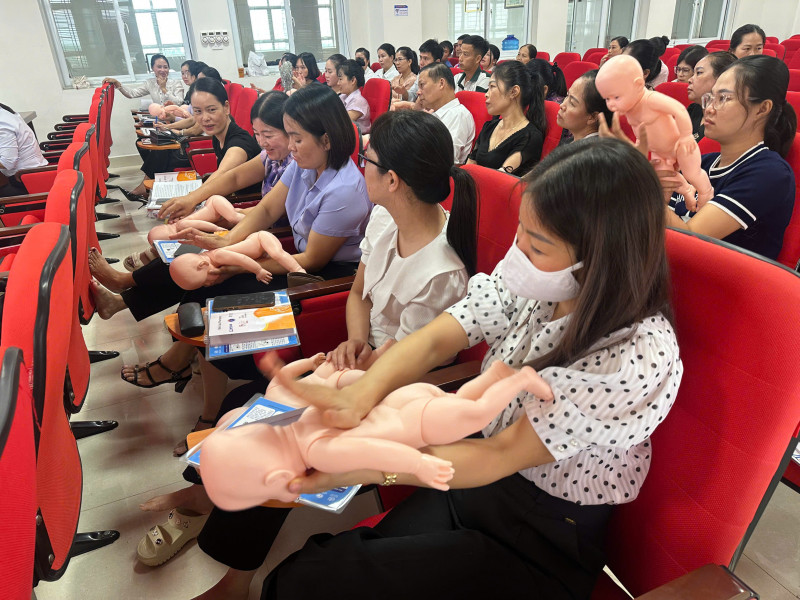
Prior to the in-person training, all 40 health workers from 20 communes/wards had completed an online course on the First 2000 Days of Life for health workers via the Early Journey of Life website, ensuring they were well-prepared for the two-day training.
A key highlight of the training was the combination of theory and practice. Alongside lectures illustrated with images, videos, and real-life scenarios, participants also practiced teaching methods. These sessions are expected to be integrated into monthly routine immunization activities at local health stations.
With openness, enthusiasm, and solid expertise, the 40 commune/ward health workers and provincial trainers had two dynamic and effective training days, offering many constructive suggestions to improve teaching skills and build greater confidence.
At the end of the course, commune/ward health workers received practice toolkits to implement the activities at their local facilities.
